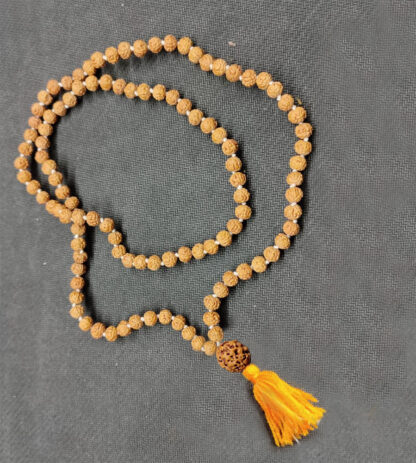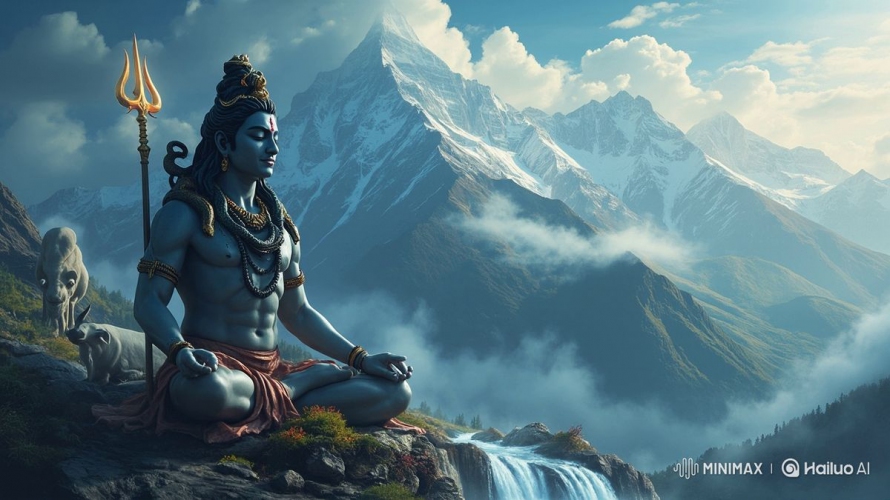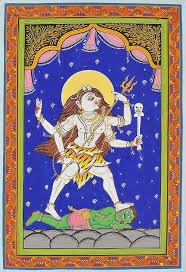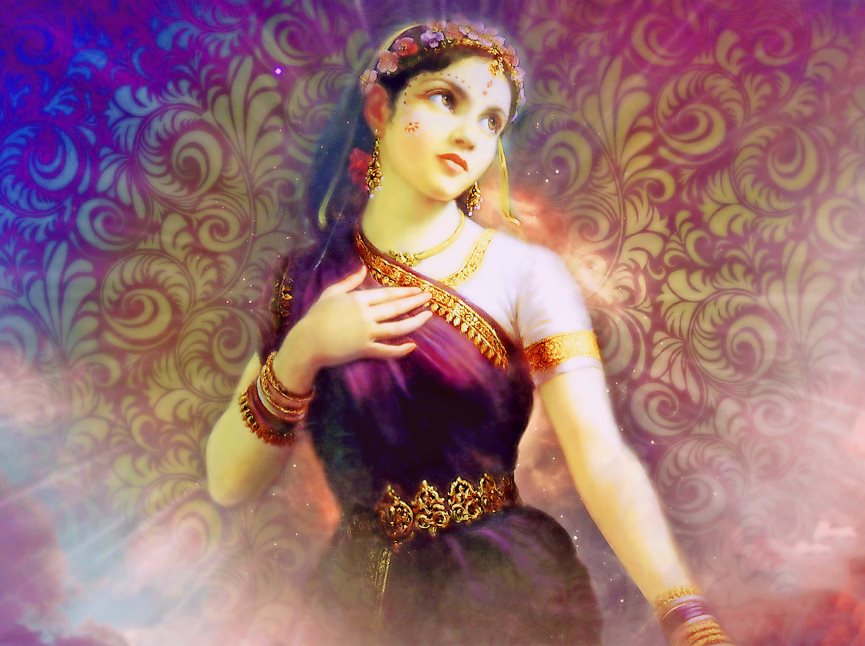Title Thumbnail & Hero Image: Śiva Mahā dev, source: www.pinterest.com, accessed date: Nov.13, 2025.
1. Skanda Purāṇa 1 (Greatness of Śiva Purāṇa and Devarāja’s story)
First revision: Nov.13, 2025
Last change: Feb.5, 2026
Searched, gathered, rearranged, translated, and compiled by Apirak Kanchanakongkha.
1.
Page 1(27)
Chapter 1-1(1)1 (Greatness of Śiva Purāṇa)
Sri Śaunaka01 said, O Sūta!2 O immensely wise one! O lord! O one who knows the outcomes of all the various determinations. In particular, please tell me about the essence of all the Purāṇas. How are good behavior, devotion and a sense of discrimination enhanced in one’s own self and in one’s sons? How do virtuous people act so as to dispel their own deviations? In this terrible kali yuga, all beings generally obtain asura traits. What is the supreme path that can cure them of this? What is that supreme object which ensures the best of the best? At present, what is the means can be used to swiftly purify one’s ātman? O father!3 With a sparkling mind, how can one always obtain Śiva?’
-------------
1. Though included in Śiva Purāṇa texts, Chapter 1.1 to 1.7 are not really from Śiva Purāṇa. They are actually from Skanda Purāṇa. But since they are about the greatness of Śiva Purāṇa, they are often included in Śiva Purāṇa texts.
2. Sūta narrated the Purāṇas to the sages, led by Śaunaka, assembled in the forest of Naimiṣa (Naimiṣāraṇya).
3. The word used is tata. While this means father, it is respectfully used to address anyone who is senior.
Notes and Narratives
01. Śaunaka (शौनक), the leader of the great sages in the Naimiṣāraṇya.
Page 2(28)
Sūta replied, ‘O tiger among sages! Since you are eager and lovingly wish to hear about this, you are blessed. Hence, I will use my intelligence to reflect on the great and excellent sacred texts and tell you. This is the outcome of all the various determinations and enhances devotion. O child! It is divine and satisfies Śiva. Listen to this medication. It is excellent and destroys the great fear arising from the predatory serpent known as Kāla.1 O sage! This is the supreme Śiva Purāṇa, stated by Śiva himself. The sage Sanātkumāra instructed Vyāsa and out of respect for him2 and for the welfare of those born in kali yuga, Vyāsa abridged them. O sage! Especially for the purification of the minds of those born in kali yuga, there is nothing other than Śiva Purāṇa. O sage! After accumulating great merits in an earlier birth, an immensely fortunate and intelligent person will develop affection for it. This Śiva Purāṇa is a supreme and excellent sacred text. On earth, it should always be served and known as Śiva’s form. If an excellent man devotedly reads it or listens to it, he instantly obtains Śiva, something that can only be attained by using every possible means. Therefore, men must make every kind of effort to read this sacred text. If one listens to it lovingly, everything desired is obtained as a fruit. When a man listens to Śambhu’s3 Purāṇa, a man is cleansed of sins. After enjoying extensive objects of pleasure, he obtains Śiva’s world. As soon as one hears about Śambhu’s account, one obtains the good merits obtained from performing a Rājasūya4,01 sacrifice or one hundred Agniṣtoma02 sacrifices.4
-------------
1. Time, destiny, death.
Trikalā (त्रिकला), Folk art from the region of Odisha, Bharat. Painted by Rabi Behera. No date of painting available, source: www.amazon.in, access date: Nov.17, 2025.
1.
2. Sanātkumāra. Originally, the Purāṇas were composed by Brahmā, who taught them to Sanātkumāra, one of the four sons born through Brahmā’s mental powers. Sanātkumāra instructed Vedavyāsa about the Purāṇas. In turn, he abridged them and classified them into eighteen. So runs the tradition.
3. Śambhu (शम्भु) is Śiva’s name.
4. Rājasūya is a royal sacrifice, agniṣtoma is a fire sacrifice.
Notes and narratives:
01. Rājasūya (राजसूय) is a great sacrifice performed by a universal monarch (in which the tributary princes also take part) at the time of his coronation as a mark of his undisputed sovereignty.
The conqueror of cardinal points was fit to perform this: Yudhiṣṭhīra on this, to Kṛṣṇa: Done by Soma who conquered the three worlds; Yudhiṣṭhira's desire to be a Pārameṣṭhī. So Ṛtviks were sent for, including Bhīṣma, Vidura. Even Śūdras were invited. After the sacrifice, on the suggestion of Sahadeva, the first honour was given to Kṛṣṇa. Śiśupāla's protest and vilification of Kṛṣṇa who had his head cut off. In the sacrifice each brother was assigned specific functions—Duryodhana in charge of treasury, Bhīma cooking, Nakula the supply of provisions, etc. The avabhṛta bath at Gangā accompanied by divine music. Every visitor duly honoured, returned back. Jealousy of Duryodhana at the success of the sacrifice. The consecration ceremony of a king done by Pṛthu, Vāli and others.
02. Agniṣtoma (अग्निष्टोम) is a sacrificial rite extending over several days in spring and forming an essential part of the Jyotiṣṭoma. Agniṣṭoma according to the Śivapurāṇa-māhātmya 1.16-17, “by listening to this Purāṇa of Śiva a man becomes sinless. After enjoying all extensive worldly pleasures, he will attain the region of Śiva. Merely by listening to the story of Śiva a man secures that merit which results from the performance of Rājasūya and a hundred Agniṣṭomas”.
1.
2.
Page 3 (29)
O sage! Those who hear the excellent sacred text of Śiva Purāṇa should not be thought of as mere mortals. There is no doubt that they are like forms of Rudra.1 Sages know that the dust from the lotus feet of those who hear this Purāṇa and chant it are like the dust from tirthas.2 Embodied beings who desire to go to the supreme region should always devotedly listen to the unblemished Śiva Purāṇa. O supreme among sages! If a person is unable to listen to it constantly, let him control his atman and listen to it for one muhūrta3 every day, let him listen to the Śiva Purāṇa on auspicious months. If people listen to the Purāṇa for one muhūrta, for half a muhūrta, for a quarter of a muhūrta or for a Kṣaṇa,4 they do not suffer from any hardships. O lord of sages! A man who listens to this Purāṇa burns down the great forest of karma and crosses saṃsāra.5 O sage! Good merits are obtained from all donations and all sacrifices. Those stable fruits are obtained from listening to Śambhu’s Purāṇa, O sage! Especially during kali yuga, there is no longer dharma for men than listening to Śiva Purāṇa. This is the means for achieving emancipation. There is no doubt that through properly hearing and reciting Śambhu Purāṇa, men obtain the fruits obtained from kalpadruma.6 In Kali yuga, there are evil-minded people who are deceitful in their atmans. They do not follow dharma. The nectar known as Śambhu Purāṇa is for their benefit.
---------------
1. Rudra is Śiva’s name.
2. A tirtha or tīrtha (तीर्थ) is a sacred place of pilgrimage with water. A kshetra (or Kṣetra – क्षेत्र) is a sacred place of pilgrimage without water. But the words are sometimes used synonymously.
3. A muhūrta (योग) is a period of 48 minutes.
4. Kṣaṇa (क्षण - moment) is a small measure of time, with differing interpretations. A second or an instant is accurate enough.
5. Saṃsāra (संसार - wandering) The cycle of birth, death, and rebirth, the image being of crossing over to the other shore.
6. The tree (druma) that yields all the wishes thought of (kalpa).
1.
2.
Page 4 (30)
A man who drinks this amrita01 does not suffer from old age and becomes immortal. The amarita of Śambhu’s account also ensures that no one in the entire family suffers from old age. They become immortal. The amarita of Śambhu’s account also ensures that no one in the entire family suffers from old age. They become immortal. It must always be served.1 In particular, it must always be served. This account of Śiva Purāṇa becomes supremely purify as soon as one hears the narration of Śiva Purāṇa. What can I say about the fruits obtained by those who hold Śiva in their hearts?’
‘The text has 24,000 ślokas, divided into seven Saṃhitās.2 Full of the three kinds of bhakti,3,02 one must lovingly listen to it. The first saṃhitā is Vidhyeśvara Saṃhitā03, the second is Rudra Saṃhitā. The Third is known as Shata Rudra, while the fourth is Koti Rudra. The fifth is known as Uma Saṃhitā, while the sixth is Kailāsa Saṃhitā. The seventh is known as Vayaviya. There are thus seven saṃhitās. With these seven saṃhitās, this divine text is known as Śiva Purāṇa. It is equal to Brahmā.4 It is supreme and yields every kind of objective. If a person lovingly reads the entire Śiva Purāṇa, with its seven saṃhitās, he is spoken of as jivanmukta.5 Until the excellent Śiva Purāṇa reaches his ears, a man is ignorant and whirled around on earth. What is the point of listening to many sacred texts and Purāṇas? They only lead to confusion. The Śiva Purāṇa announces that it alone can bestow emancipation. If the account of the Śiva Purāṇa is heard in any house, that house becomes a tīrtha and the sins of all those who reside in that house are destroyed.
---------------
1. To ensure emphasis, the text has this repetition.
2. Saṃhitā (संहिता) is a collection of verses.
3. The first kind of Bhakti (भक्ति) is pure bhakti, without any desire for fruits. A second kind of bhakti desires fruits. A third kind of bhakti is mixed bhakti, where both objectives exist.
4. Interpreted as the brahman (ब्रह्मन्). However, a straightforward interpretation is that it is equal to the Brahmā Purāṇa.
5. A person emancipated (mukta) while he still retains life (jivan).
Notes & Naratives
01. Amarita (अमरीता) - Elixir is a liquid or drink believed to grant the drinker immortality or preserve their physical youth for eternity. Some say it can restore or regenerate life. It is considered a type of antidote to all diseases. Alchemists throughout time and in various cultures have tried to find ways to prepare it.
02. Bhakti (भक्ति).
Bhakti Devī, source: iskcondesiretree.com, access date: De.8, 2025.
1.
- A Devī born in Drāviḍa deśa (Southern India). Once Devī, along with her two sons, Jñāna and Vairāgya, started on a walking tour to Gokula and Vṛndāvana via Karṇāṭaka, Mahārāṣṭra and Gurjara (Gujarat). During the long tour the mother and her sons became aged. But, as soon as they set foot on Gokula and Vṛndāvana old age quitted Bhakti, and she became young again. But her sons remained old. So, the mother requested Nārada to turn them young again. Nārada read out to them the Vedas, the Vedānta (Upaniṣads) and the Bhagavad Gītā, all to no purpose. Bhakti’s sons still remained old. Then Sanaka, Sananda and Sanatkumāra asked Nārada to read out the Bhāgavata to them. Nārada did so, and the sons of Bhaktī Devī became young again. (Padma Purāṇa).
- Bhakti (भक्ति) refers to one of the various systems of belief and worship that once existed in ancient Kashmir (Kaśmīra) as mentioned in the Nīlamatapurāṇa. —As regards the cult of Bhakti, the Nīlamata introduces personal deities who are always ready to help their worshippers. The devotee surrenders himself wholly to the hands of God Who destroys his sufferings. Vāsuki, Kaśyapa, Nīla, Paraśurāma, all approach Viṣṇu as humble devotees and get the fulfilment of their desires. Śiva himself goes to Kālodaka lake to endow Nandī with a boon. The Nāga deity Nīla is described as compassionate for the devotees and performer of their deeds. The only condition is that the worshipper must approach the deity with true devotion and feeling of submission. One thing notable is that the devotion in the Nīlamata does not contain the exotic element.
- Bhakti (भक्ति) refers to “devotion” which is considered the root of “true knowledge” (vijñāna), according to the Śivapurāṇa 2.1.12, while explaining details of worship:—“[...] the root of true knowledge (vijñāna) is unswerving devotion (bhakti). The root of knowledge (jñāna) too is devotion. The root of devotion is good action and the worship of one’s own favourite deity. The root of that is the good preceptor. A good preceptor is secured only through association with good people”.

Goddess Satī, the Goddess of marital felicity and longevity. She is the first consort of Śiva, the second being Pārvatī, the reincarnation of Satī herself. She was born of mortal parents at the bidding of the God Brahma, source: hindugod99.blogspot.com, access date: Dec.14, 2025.
1.
- Bhakti (भक्ति) refers to the “(nine-fold) devotion”, as explained in the Śivapurāṇa 2.2.23, as Śiva said to Satī:—“[...] O Goddess Satī, listen, I shall explain the great principle whereby the remorseful creature becomes a liberated soul (mukta). [...] Devotion (bhakti) to me is considered as the bestower of worldly pleasures and salvation. It is achievable only by my grace. It is nine-fold (navadhā). There is no difference between devotion and perfect knowledge. A person who is engrossed in devotion enjoys perpetual happiness. Perfect knowledge never descends in a vicious person averse to devotion”.
The nine ancillary adjuncts (navāṅga) [of devotion] are:
(1) listening (śravaṇa),
(2) eulogising (kīrtana),
(3) remembering (smaraṇa),
(4) serving (sevana),
(5) surrendering, (dāsya)
(6) worshipping (arcana),
(7) saluting (vandana),
(8) friendliness (sakhya),
(9) dedication (arpaṇa).
03. Vidhyeśvara Saṃhitā (वैद्येश्वर संहिता) - one of the seven saṃhitās mentioned in the Śiva Purāṇa. In the Vidhyeśvara Saṃhitā of the Śiva Purāṇa Sūta, the greatness of worshipping the Śiva Liṅga (लिङ्ग) is described. Those who are unable to perform the three rituals—"śravaṇa (hearing)," "manana (reflection)," and "nididhyāsana (constant musing)"—should worship the Śiva Liṅga to cross the ocean of worldly life. The text then details the method of worship, which includes building a shrine, offering flowers, food, and other offerings.
1.
2.
Page 5 (31)
Indeed, one thousand Āśvamedha sacrifices and one hundred vajapeya sacrifices1 do not amount to one sixteenth of what is obtained from Śiva Purāṇa. O supreme among sages! A person who has not heard the Śiva Purāṇa, full of great devotion. There are sacred rivers, Ganga, and others. There are seven cities, Gaya and the others. None of them is equal to this Śiva Purāṇa. If one desires the supreme objective, every day, one should devotedly read, with one’s own mount, one śloka, or half a śloka, from Śiva Purāṇa. If one understands the meaning and speaks about Śiva Purāṇa, or if one constantly reads it devotedly, there is no doubt that the person’s atman is auspicious. If an intelligent person devotedly listens to it at the time of death, Maheśa2 is extremely pleased with him and grants him a place in his own abode. If a person lovingly worships Śiva Purāṇa every day, he enjoys every object that he desires. After this, he obtains a destination with Śiva. Attentively, the Śiva Purāṇa must always be wrapped in a piece of linen garment. A person who honours it in this way will always be happy. The unblemished Śiva Purāṇa is everything for a person who is devoted to Śiva. If he desires happiness in this world and in the next one, he must make every effort to lovingly serve it. The supreme and unblemished Śiva Purāṇa bestows the four objectives of human existence.3 It must always be heard. In particular, it must always be lovely read. It is supreme among the Vedas, Itihasa and sacred texts and ensures great benefit. The Śiva Purāṇa must always be understood by those who desire emancipation. For those who seek to know about the atman, this Śiva Purāṇa is supreme. Among all supreme objects, it must always be served and worshipped by the virtuous.
---------------
1. Aśvamedha (अश्वमेध) is a horse sacrifice, vājapeya (वाजपेय) is a type of sacrifice at which soma is offered.
2. Maheśa (महेश) The great lord, Śiva.
3. The four Puruṣārthas (पुरुषार्थ - Puruṣārtha - four aims of life) of dharma (धर्म), artha (अर्थ), kāma (काम), and mokṣa (मोक्ष ).
1.
2.
Page 6 (32)
It pacifies the three kinds of hardships.1 It bestows happiness and must always be loved more than one’s own life. It pleases Brahmā01, Hari02, Īśa03, and the immortals.2 With every kind of happiness in my mind, I worship Śiva Purāṇa. May Śiva be pleased with me and bestow on me devotion at his own feet.’
1.
2.
3.
Chapter 2-1(2) (Devarāja04’s story)
1.
Śhaunaka said, ‘O Sūta! O immensely fortunate one! O Sūta! You know the supreme meaning and are blessed. Out of your compassion, you have made us hear this divine and extraordinary account. It purifies the mind and destroys a torrent of sins. We have heard this wonderful account that generates satisfaction in Śiva. There is nothing on earth that is equal to this account. There is nothing else that is superior. Because of your compassion, we have certainly learned about this. In the Kali Yuga, who are the sinners who are the sinners who get purified by this account? O Sūta! Out of your compassion, please tell us, for the sake of gratifying the world.’
Sūta replied, ‘There are men who commit sins. They are deceitful and wicked in their conduct. They are constantly devoted to desire and other vices. They, too, are purified by this. This is an excellent Jñāna-yajña.3 It always bestows objects of pleasure and emancipation. It cleanses all sins and brings satisfaction to Śiva. There are those who are overwhelmed by thirst.4 They are bereft of the truth and censure their fathers and mothers.
---------------
1. Relating to Adhidaivika (अधिदैविक - destiny), Ādhibhautika (आधिभौतिक - nature), and Adhyātmika (अध्यात्मिक - one’s own nature).
2. Hari (हरि) is Viṣṇu, and Īśa is Śiva.
3. A sacrifice in pursuit of Jnana or Jñāna (ज्ञान - knowledge). Jñānayajña (ज्ञानयज्ञ) - refers to “sacrifice in the form of deliberation on spiritual nature”. (cf. Glossary page from Śrīmad-Bhagavad-Gītā).
4. That is, desire.
Notes & Narratives:
01. Brahmā (ब्रह्मा)
02. Hari (हरि)
03. Īśa or Isha (ईश) - 1). A Viśvadeva. (Universal deva). (Mahābhārata Anuśāsana Parva, Chapter 91, Verse 31), 2). - (Śiva) became Rudra through Lalita's grace. - also īśāna Image of; fourth mūrti as protecting Āditya. 3). refers to “controller. Sometimes refers to Viṣṇu and other times to Rudra”. (cf. Glossary page from Śrīmad-Bhagavad-Gītā).
04. Devarāja (देवराज) - Indra, king of demigods (Vaishnavism).
1.
2.
Page 7 (33)
They are insolent and cause violence. Even such people are purified by this. There are those who abandon the dharma of their own Varṇa and Āśrama.1 They are full of envy. In Kali Yuga, even they are purified by this Jñāna-yajña. There are deceitful ones who indulge in fraud. They are cruel and heartless. In Kali Yuga, even they are purified by this Jñāna-yajña. There are those who sustain themselves by appropriating the property of Brāhmaṇas and are addicted to being deviant.2 In Kali Yuga, even they are purified by this Jñāna-yajña. There are those who constantly indulge in sin. They practice fraud and are extremely wicked. In Kali Yuga, even they are purified by this Jñāna-yajña. There are those who are filthy and evil in intelligence. They survive on the possessions of serene devas.3 In Kali Yuga, even they are purified by this Jñāna-yajña. This is the most sacred of Purāṇas. It destroys major sins. It bestows objects of pleasure and emancipation and ensures satisfaction to Śiva.’
‘In this connection, an ancient history is recounted. As soon as one hears it, sin no longer remains. In the city of Kirātas,4 there was a Brāhmaṇa whose learning was deficient. He turned away from the Dharma of Devas and sold juices to the poor.5 He deviated the means of subsistence meant for Vaiśyas.6
---------------

2. Vyabhicāra (व्यभिचार), usually deviant in sexual matters. refers to “going astray”, according to the Śivapurāṇa 2.3.54 (“Description of the duties of the chaste wife”).—Accordingly, as a Brahmin lady said to Pārvatī: “[...] O gentle lady, the chaste ladies can be divided into four classes. Even when they are remembered they dispel sins. The divisions comprise of the superior etc. They are superior, middling, inferior (nikṛṣṭā) and very inferior. I shall explain their characteristics. Listen with attention. [...] O Pārvatī, she who ponders over her duty mentally and desists from going astray (vyabhicāra) is inferior among the chaste. Of course she is pure in conduct. [...]”.
3. Implying that they steal from temples.
4. Kirātas were hunters. Kirāta (किरात) - People of an eastern kingdom; a mountain kingdom; defeated by Bhārata and purified of sin by the worship of Hari;1 vanquished by Kalki;2 a hill tribe.3 Defeated by Sāgara, took caves and hills as residences;4 reside on the east of Bhāratavarṣa;5 co-habitation with Kirāta women by a Brāhmaṇa; purification at the end of the twelfth day—rites cited.
5. Since they are poor, they should not have been asked to pay. Alternatively, daridrorasa may mean that he sold liquor.
6. Sandhyā (सन्ध्या) or Sandhya is the period between day and night and means dawn or dusk. Sometimes, midday is also referred to as sandhyā. At these times, one should bathe. Trade, buying and selling, is for Vaiśyas, not Brāhmaṇas.
1.
2.
Page 8 (34)
He was known as Devarāja, and he deceived people who trusted him. He deprived Brāhmaṇas, Kṣatriyas, Vaiśyas, and Śūdras of their possessions. Through such fraudulent means, he accumulated wealth. Through many such acts of adharma, he gathered wealth for himself. But since he was a sinner, he did not spend the slightest bit of this on acts of Dharma. On one occasion, the Brāhmaṇa went to a lake to have his bath. A courtesan named Śobhavati (शोभवति - An Apsarasa gaṇa, daughters of Marut.) arrive there. On seeing her, he was agitated. Realizing that the wealthy Brāhmaṇa had come under her subjugation, the beautiful lady was delighted. As a result of their conversation, love was generated in his mind. He wanted to make her his wife. She also consented that he would become her husband. In this way, they came under the subjugation of desire and sported for a very long time. When seated, lying down, drinking, eating and playing, they behaved towards each other as couples do and resided accordingly. His mother, father and wife1 repeatedly tried to restrain him. But he did not pay heed to their words and continued to indulge in this wicked conduct. On one occasion, he succumbed to his intolerance. While they were asleep in the night, the wicked person killed his parents and wife and stole their wealth. His mind was full of desire for the courtesan. He handed over his wealth and the wealth he obtained from his father and others to her. The sinner ate what should not be eaten. He wished to drink liquor. That worst of Brāhmaṇas always ate from the same vessel as the courtesan.’
On one occasion, urged by destiny, he arrived in the city of Pratiṣṭhāna (प्रतिष्ठान).2 He saw a Śiva temple there, surrounded by virtuous people. While the Brāhmaṇa was there, he suffered from a terrible fever and constantly heard Śiva’s account, uttered from the mount of another Brāhmaṇa. Suffering from the fever, at the end of a month, Devarāja died.
---------------
1. There was an earlier wife.
2. Usually, but not invariably, identified as Paithan in Mahārāṣṭra (महाराष्ट्र).
1.
2.
Page 9 (35)
Yama’s servants bound him up in nooses and forcibly conveyed him to Yama’s city. However, Śiva’s attendants were there, dressed in white and wielding tridents in their hands. All their limbs were smeared with ashes, and they wore Rudrākṣa (रुद्राक्ष) beads.1 They arrived from Śiva’s world and angrily went to Yama’s city. They reprimanded his messengers and repeatedly struck them. They released Devarāja and placed him on a wonderful Vimāna (विमान).2 Making him sit there, the messenger eagerly started to leave for Kailāśa (कैलाश). At this, there was a great tumult in Yama’s city. Hearing this, Dharmarāja3 emerged from his own residence. He saw those four messengers, who seemed to be like Rudra himself. Dharmarāja, who knew about Dharma, followed the norms and worshipped them. Using the insight of knowledge, Yama got to know about the entire incident. Scared, he did not ask the great-souled Śambhu (शम्भु)’s messengers anything. Having been worshipped, they sought his leave. They went to Kailāśa and handed him over to Śiva and Amba,4 who are oceans of compassion. The accounts of Śiva Purāṇa are blessed and supremely purifying. As soon as he hears it, a sinner is emancipated. Sadashiva’s excellent abode is a great and supreme region. Those who know the Vedas say that it is located above all the worlds. The Brāhmaṇa Devarāja was a sinner. Because of his greed, he caused violence to Brāhmaṇas, Kṣatriyas, Vaiśyas, Śūdras, and many other beings, robbing them of their lives. He killed his mother, his father, and his wife. He was a drunkard and had intercourse with a courtesan. However, as soon as he arrived there, he was instantly emancipated.’
---------------
 Rudrākṣa beads, source: sagittariuspublications.com, access date: Feb.5, 2026.
Rudrākṣa beads, source: sagittariuspublications.com, access date: Feb.5, 2026.
2. Celestial and divine vehicles.
3. Yama.
4. Parvati, meaning mother.
References:
01. from. Shiva Purana Volume 1, translated by Bibek Debroy, Penguin Random House India, 2023, ISBN 9780143459699, printed in Bharat.
02. from. www.wisdomlib.org.
1.
2.
3.






